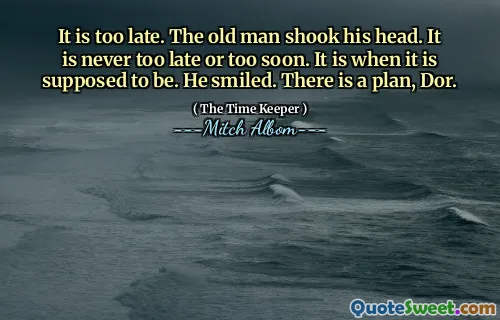Wrong will be right, when Aslan comes in sight,At the sound of his roar, sorrows will be no more,When he bares his teeth, winter meets its death,And when he shakes his mane, we shall have spring again.
The quote evokes a sense of hope and transformation associated with the character Aslan from C.S. Lewis's "The Lion, the Witch and the Wardrobe." It suggests that justice and goodness will prevail when Aslan arrives. His presence is linked to the end of sorrow and the restoration of happiness, symbolizing a powerful force that can bring about change.
Furthermore, Aslan's imagery of roaring and shaking his mane signifies strength and the ability to defeat darkness. The transition from winter to spring metaphorically represents the triumph of life and joy over despair and oppression, emphasizing the theme of renewal and the return of light after a long period of darkness.





